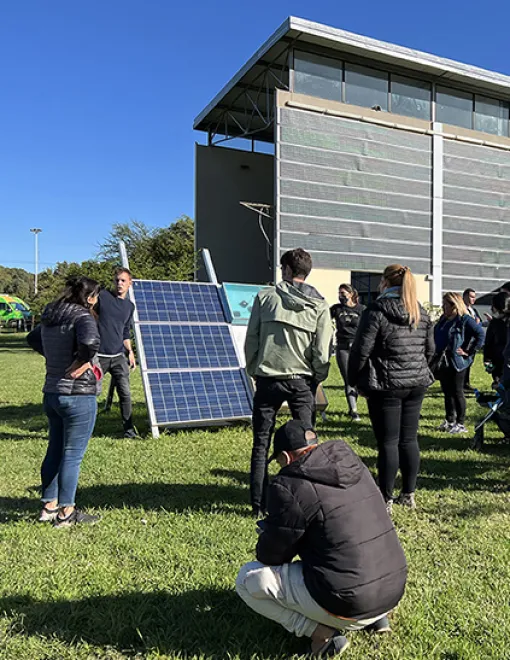
Visit to Paseo Ambiental del Sur APRA, April 2022. Source TUC Program.
In recent decades, informal settlement upgrading and housing deficit in Latin America has been addressed through a variety of urban programs, usually structured around physical-spatial and social actions with an emphasis on the provision of basic infrastructure and services, improved accessibility and connectivity and new housing, mostly done by conventional means. In general, they fail to incorporate new frameworks that provide solutions with strong environmental roots, such as Nature-based Solutions (NbS), Blue-Green Infrastructure (BGI) or Ecosystem-based Adaptation (EbA). This article explores the potentiality of NbS/BGI in contributing to solve structural problems in marginal urban areas, the mindshifts and actor coalitions needed to support this and how it may promote equity and justice. This is analyzed in a particular setting: Villa 20, an informal settlement in the City of Buenos Aires that is undergoing a participatory urban upgrading process with a strong participatory platform made up of multiple spaces and devices for consensual decision- making on re-urbanization aspects. In Villa 20, several interrelated projects and programs are focusing on sustainability. In particular, the Transformative Urban Coalitions (TUC) of the International Climate Initiative (IKI) is connecting decarbonization with urban inequalities and urban justice. The article reflects on some of the initial outcomes of the TUC program that builds upon the ongoing participatory upgrading process. To discuss the links between the use of NbS, mindshifts and transformative urban coalitions we look into the social setting, methods and tools that promote mindset shift. We explore initial mindset changes in government teams; community leaders; and participants of an Urban Lab and the building up of a new transformative actor coalition. With this, we aim to better understand the possibilities and potential implications of implementing NbS in marginalized social contexts, contributing both to closing the knowledge gap and re-thinking future policies and programs.